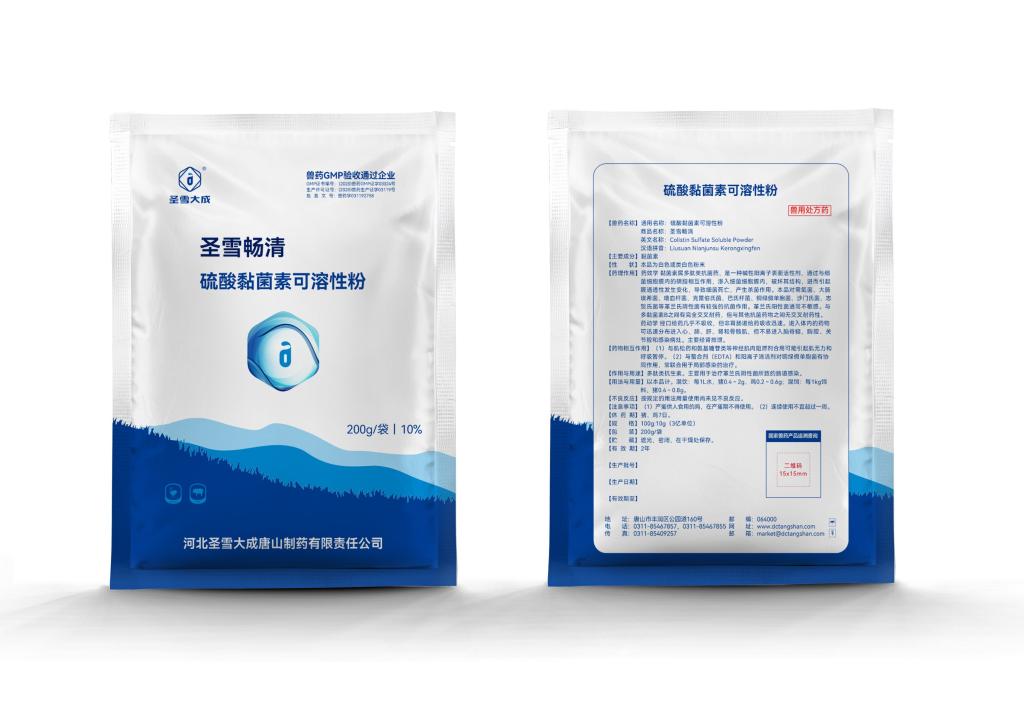Tel:+8618231198596

News
 CONTACT
CONTACT
 CONTACT
CONTACT
- Linkman:Linda Yao
- Tel: +8618231198596
- Email:linda.yao@dcpharma.cn
- Linkman:CHARLES.WANG
- Department:Overseas
- Tel: 0086 0311-85537378 0086 0311-85539701
News
Current Position:
Home >
News
>Challenges and Opportunities: Colistin Sulfate Soluble Powder in Global Agriculture.
Challenges and Opportunities: Colistin Sulfate Soluble Powder in Global Agriculture.
TIME:2024-01-08
1. Historical Significance and Adoption in Agriculture:
Originally employed in human medicine, colistin sulfate found its way into agriculture due to its efficacy against Gram-negative bacteria. This section explores the historical context of its adoption in agriculture, tracing its journey from a human antibiotic to a critical tool in animal husbandry.
2. Current Applications and Importance in Livestock Health:
Colistin sulfate soluble powder plays a pivotal role in maintaining livestock health, particularly in intensive farming systems. This section examines the current applications of colistin in agriculture, focusing on its use in preventing and treating bacterial infections in animals.
3. Antibiotic Resistance and its Implications:
The emergence of antibiotic resistance, particularly colistin resistance, poses a grave threat to global health. This section delves into the mechanisms of resistance, the implications for animal and human health, and the urgency to address this escalating crisis in agriculture.
4. Environmental Impact and Residual Effects:
The use of colistin sulfate in agriculture contributes to environmental concerns. Residual colistin in soil and water can lead to the spread of resistance genes. This section explores the environmental impact of colistin use and the potential consequences for ecosystems and human health.
5. Global Perspectives and Regulatory Measures:
Different countries approach the regulation of colistin in agriculture differently. This section provides an overview of global perspectives, examining regulatory measures, restrictions, and variations in policies aimed at addressing the challenges associated with colistin use.
6. Alternatives and Sustainable Practices:
In response to concerns about antibiotic resistance, there is a growing emphasis on finding alternatives to colistin in agriculture. This section explores potential substitutes, including probiotics, prebiotics, and other sustainable practices that can contribute to reducing reliance on colistin sulfate.
7. Animal Welfare and Ethical Considerations:
The ethical implications of colistin use in agriculture extend beyond health concerns. This section discusses the impact on animal welfare and the ethical considerations associated with the use of antibiotics, urging a reevaluation of practices to ensure the well-being of animals in farming systems.
8. Opportunities for Innovation:
Amidst the challenges, there are opportunities for innovation in agriculture. This section explores technological advancements, precision farming, and novel approaches that can contribute to sustainable agriculture while mitigating the risks associated with colistin use.
9. International Collaborations and One Health Approach:
Addressing the challenges posed by colistin sulfate in agriculture requires a collaborative, international effort. This section advocates for a One Health approach, emphasizing the interconnectedness of human, animal, and environmental health in the pursuit of sustainable and responsible agricultural practices.
10. Future Directions and Research Needs:
As agriculture navigates the complexities surrounding colistin sulfate, ongoing research is imperative. This section outlines potential future directions, including research priorities, policy changes, and technological innovations needed to shape the future of antibiotic use in global agriculture.
11. Conclusion:
Colistin sulfate soluble powder stands at the intersection of challenges and opportunities in global agriculture. Balancing the imperative to ensure livestock health with the need to address antibiotic resistance and environmental impact requires a holistic and collaborative approach. By acknowledging the challenges, exploring alternative practices, and fostering international collaborations, the agricultural sector can unlock new opportunities for innovation, sustainability, and the responsible use of antibiotics in the pursuit of a healthier and more resilient global food system.
- Tel:+8618231198596
- Whatsapp:18231198596
- Chat With Skype







